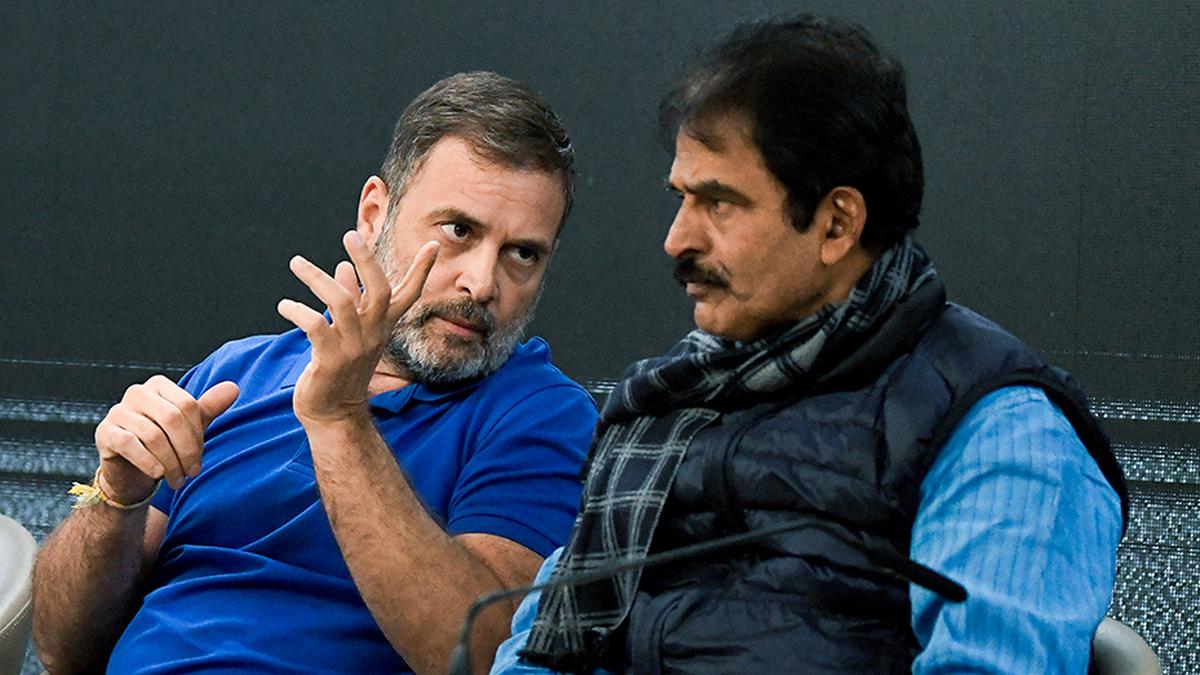NEW DELHI: National Human Rights Commission’s spot inquiry into the violence in Sandeshkhali case has revealed “several instances of atrocities on victims” that prima facie show that there was violation of human rights due to “negligence in prevention” of these incidents. The Commission has recommended an impartial investigation into the complaints by central agencies.
Noting that the Calcutta High Court is already hearing the Sandeshkhali case, the NHRC will be seeking leave of the HC to intervene in the matter.
As per the observations in the report based on a spot visit by a team led by one of its members from the commission between February 23-25 “the atmosphere due to the atrocities by the alleged accused persons rendered the victims silent” and the “intimidation” and “terror created” made them “reluctant to seek justice”.
The NHRC emphasised on the need to “reinstate trust in the rule of law and confidence in authorities” and “uproot the fear” of these accused persons from the hearts of the victims. The commission highlights the important role that district authorities have going forward in instilling confidence among residents so that others who have been victims of crimes may come forward and file their complaints.
The NHRC has recommended the appointment of special rapporteurs to periodically report on the situation in Sandeshkhali. Some of the other recommendations include – “investigation of missing girls and women from Sandehskhali; ensuring witness protection and redressal of grievances; counseling and rehabilitation of victims of sexual offences; return of the land to the legitimate owners; operationalisation of Nationwide Emergency Response System (NERS).”
The enquiry report highlights with much concern that according to data on missing females provided by Police Station Sandeshkhali from January 1,2023 to February 25, as many as 37 young women and 3 minor girls were still untraced. “This number is alarmingly large and a thorough in-depth investigation is required to trace the victims and to ascertain the reasons for their going missing including the angel of human trafficking,” the report states. Hence the Commission has recommended that an investigation is necessary into cases of women who have gone missing.
The commission has sought an action taken report on its recommendations within eight weeks from the West Bengal govt.
According to the report the “The villagers/victims faced assault, threat, sexual exploitation, land grabbing, and forced unpaid labour, and under the given circumstances they were compelled to seek livelihood outside the Sandeshkhali region.”
The inquiry also observes that “allegations of deprivation of the right to vote are serious in nature and undermine the democratic values of the nation.”
The NHRC statement further highlighted that the inquiry team interacted with the police and administration at Sandeshkhali and requested for further information, “but despite reminders, no reply has been given to date”.
Sheikh Shahjahan – the prime accused facing allegations of land grab and sexual harassment in Sandeshkhali, was arrested on February 29 by the state police. A Trinamool Congress (TMC) leader, Shahjahan, was suspended by the party for six years after his arrest.
On February 21, the NHRC, had taken suo motu cognizance of media reports related to the protests and violence in Sandeshkhali. Besides deciding on sending a team to the spot, the Commission also sought a report from the state government. In response to the NHRC notice the DG & IGP, West Bengal on February 29 revealed that a total of 25 cases were registered among which 7 cases were on complaints of alleged sexual offence against women and 24 accused persons were arrested. The state authorities had said that efforts were also being made to arrest the absconding perpetrators of the crime. The overall situation of the entire Sandeshkhali area was described by the state authorities “to be well under control”.
Noting that the Calcutta High Court is already hearing the Sandeshkhali case, the NHRC will be seeking leave of the HC to intervene in the matter.
As per the observations in the report based on a spot visit by a team led by one of its members from the commission between February 23-25 “the atmosphere due to the atrocities by the alleged accused persons rendered the victims silent” and the “intimidation” and “terror created” made them “reluctant to seek justice”.
The NHRC emphasised on the need to “reinstate trust in the rule of law and confidence in authorities” and “uproot the fear” of these accused persons from the hearts of the victims. The commission highlights the important role that district authorities have going forward in instilling confidence among residents so that others who have been victims of crimes may come forward and file their complaints.
The NHRC has recommended the appointment of special rapporteurs to periodically report on the situation in Sandeshkhali. Some of the other recommendations include – “investigation of missing girls and women from Sandehskhali; ensuring witness protection and redressal of grievances; counseling and rehabilitation of victims of sexual offences; return of the land to the legitimate owners; operationalisation of Nationwide Emergency Response System (NERS).”
The enquiry report highlights with much concern that according to data on missing females provided by Police Station Sandeshkhali from January 1,2023 to February 25, as many as 37 young women and 3 minor girls were still untraced. “This number is alarmingly large and a thorough in-depth investigation is required to trace the victims and to ascertain the reasons for their going missing including the angel of human trafficking,” the report states. Hence the Commission has recommended that an investigation is necessary into cases of women who have gone missing.
The commission has sought an action taken report on its recommendations within eight weeks from the West Bengal govt.
According to the report the “The villagers/victims faced assault, threat, sexual exploitation, land grabbing, and forced unpaid labour, and under the given circumstances they were compelled to seek livelihood outside the Sandeshkhali region.”
The inquiry also observes that “allegations of deprivation of the right to vote are serious in nature and undermine the democratic values of the nation.”
The NHRC statement further highlighted that the inquiry team interacted with the police and administration at Sandeshkhali and requested for further information, “but despite reminders, no reply has been given to date”.
Sheikh Shahjahan – the prime accused facing allegations of land grab and sexual harassment in Sandeshkhali, was arrested on February 29 by the state police. A Trinamool Congress (TMC) leader, Shahjahan, was suspended by the party for six years after his arrest.
On February 21, the NHRC, had taken suo motu cognizance of media reports related to the protests and violence in Sandeshkhali. Besides deciding on sending a team to the spot, the Commission also sought a report from the state government. In response to the NHRC notice the DG & IGP, West Bengal on February 29 revealed that a total of 25 cases were registered among which 7 cases were on complaints of alleged sexual offence against women and 24 accused persons were arrested. The state authorities had said that efforts were also being made to arrest the absconding perpetrators of the crime. The overall situation of the entire Sandeshkhali area was described by the state authorities “to be well under control”.






